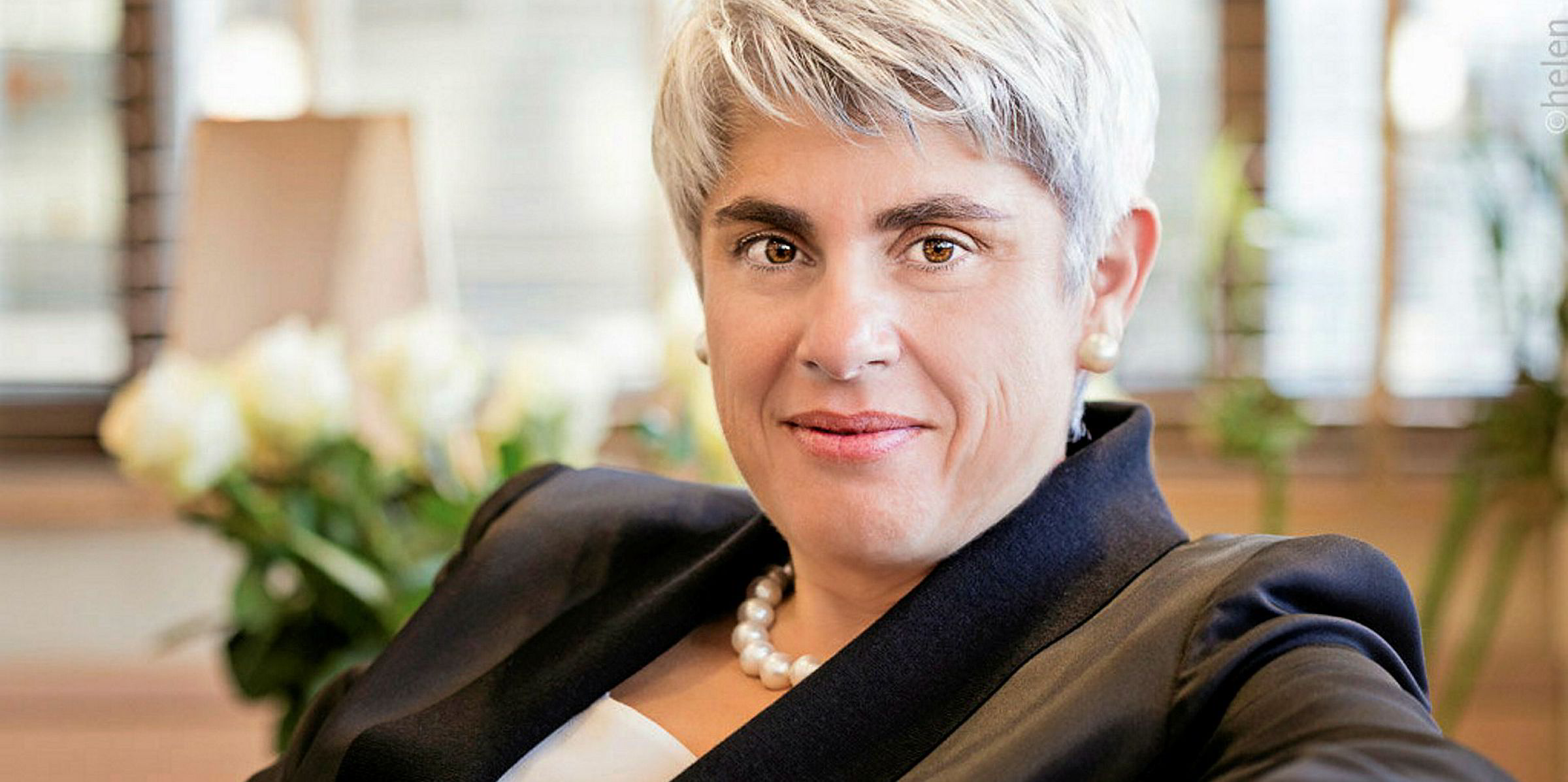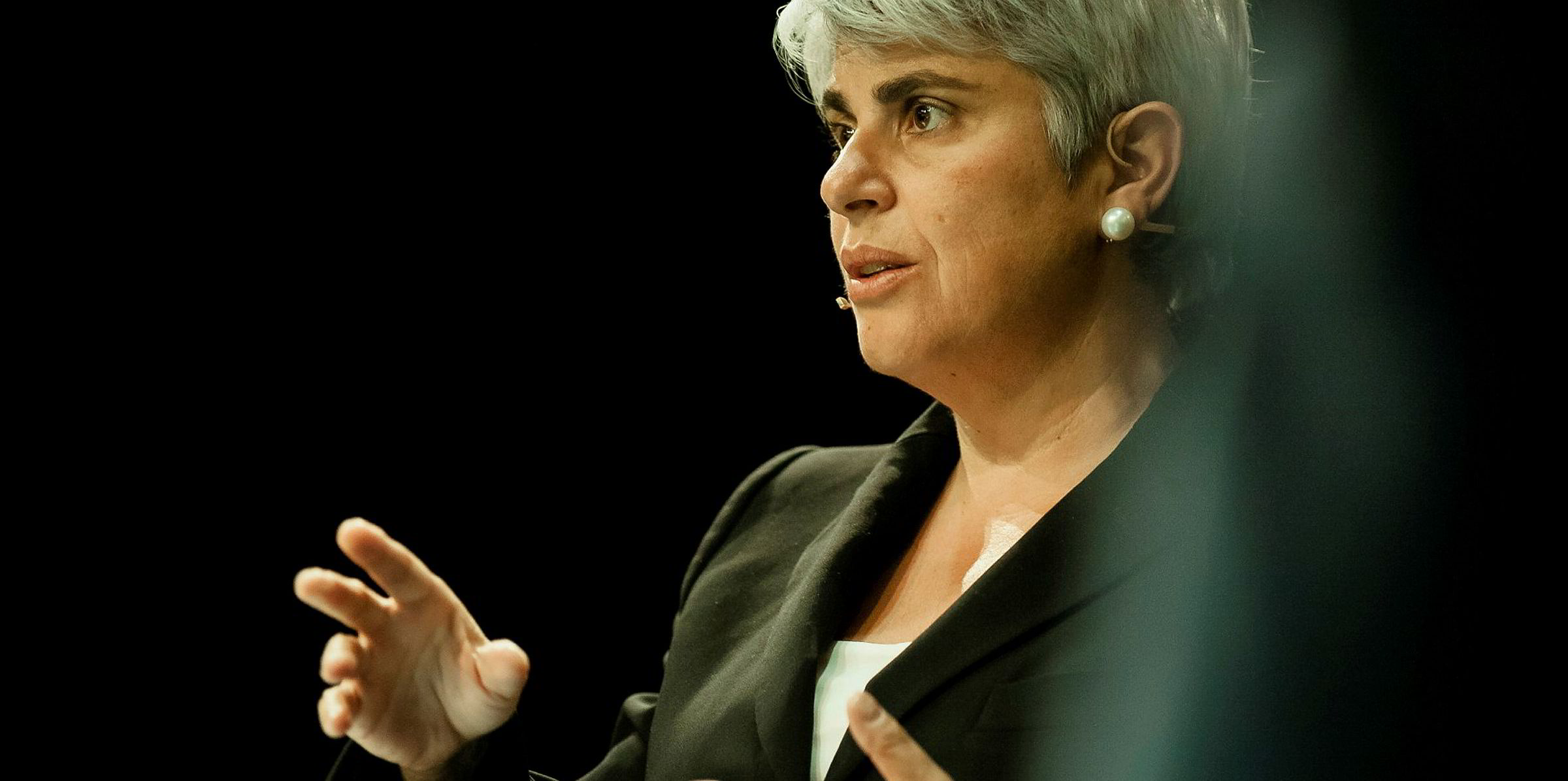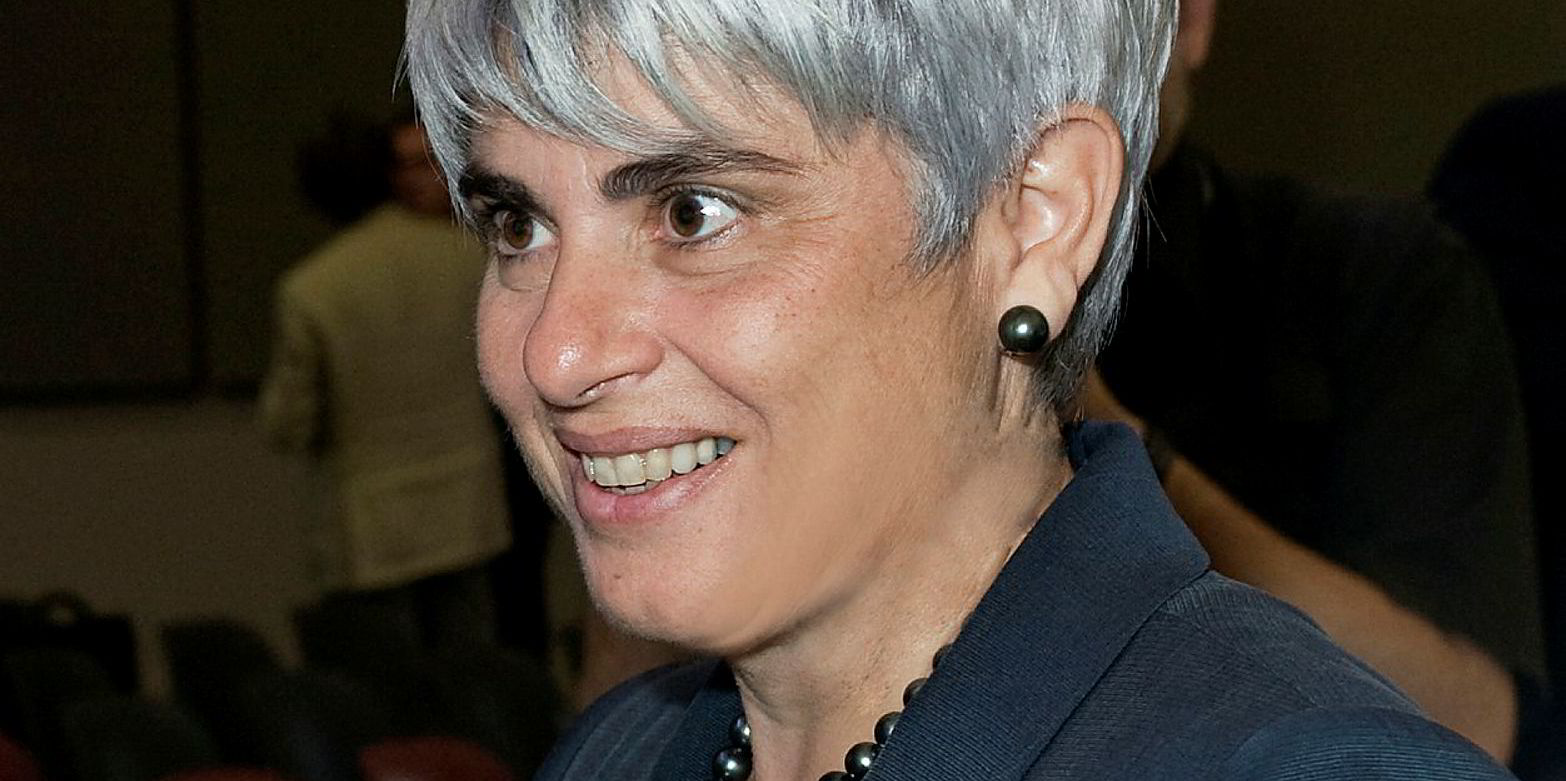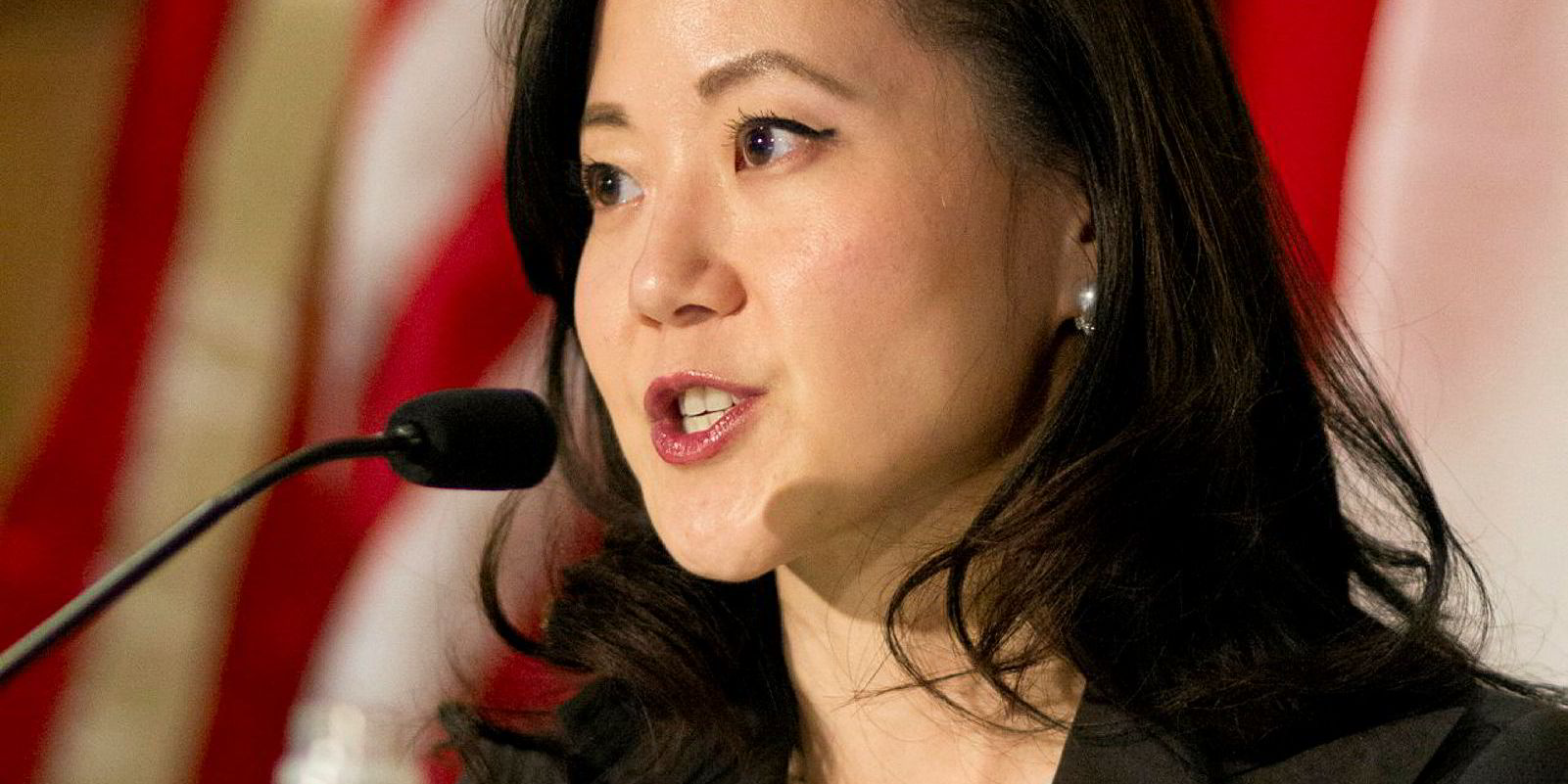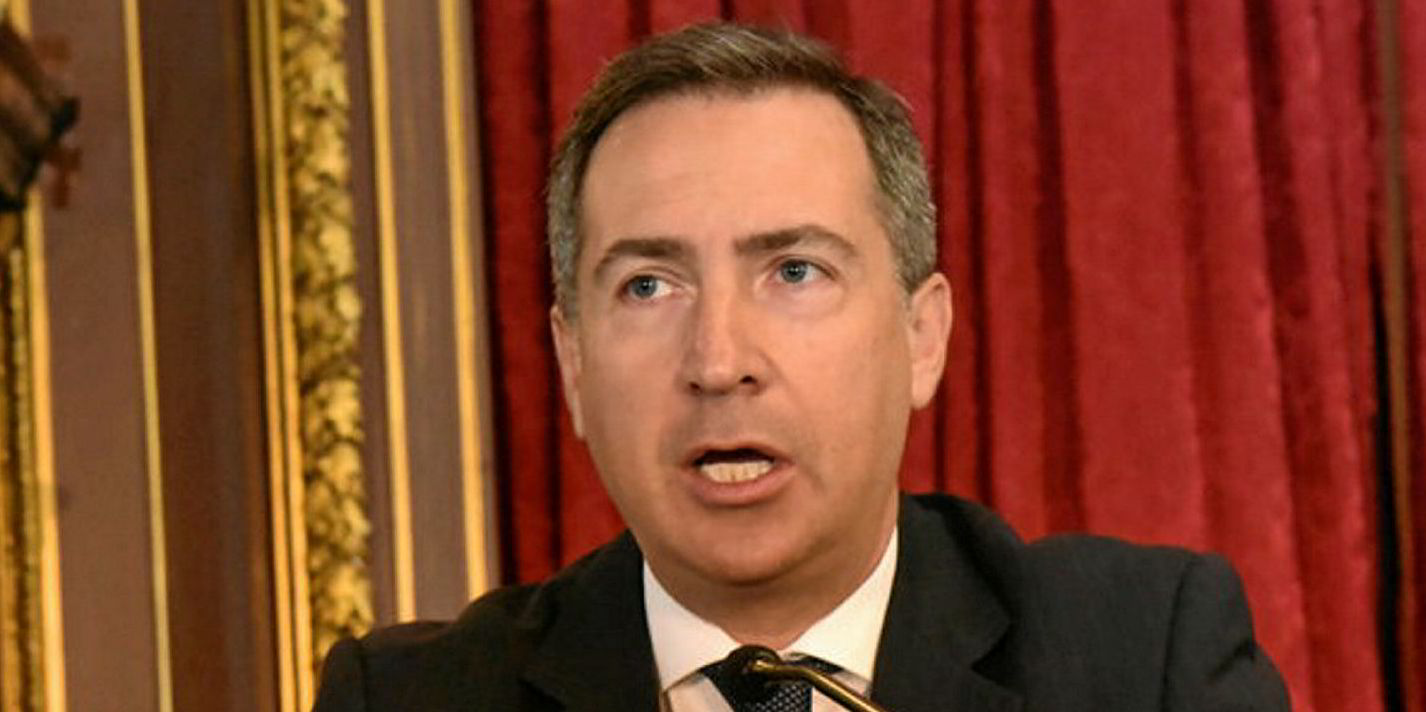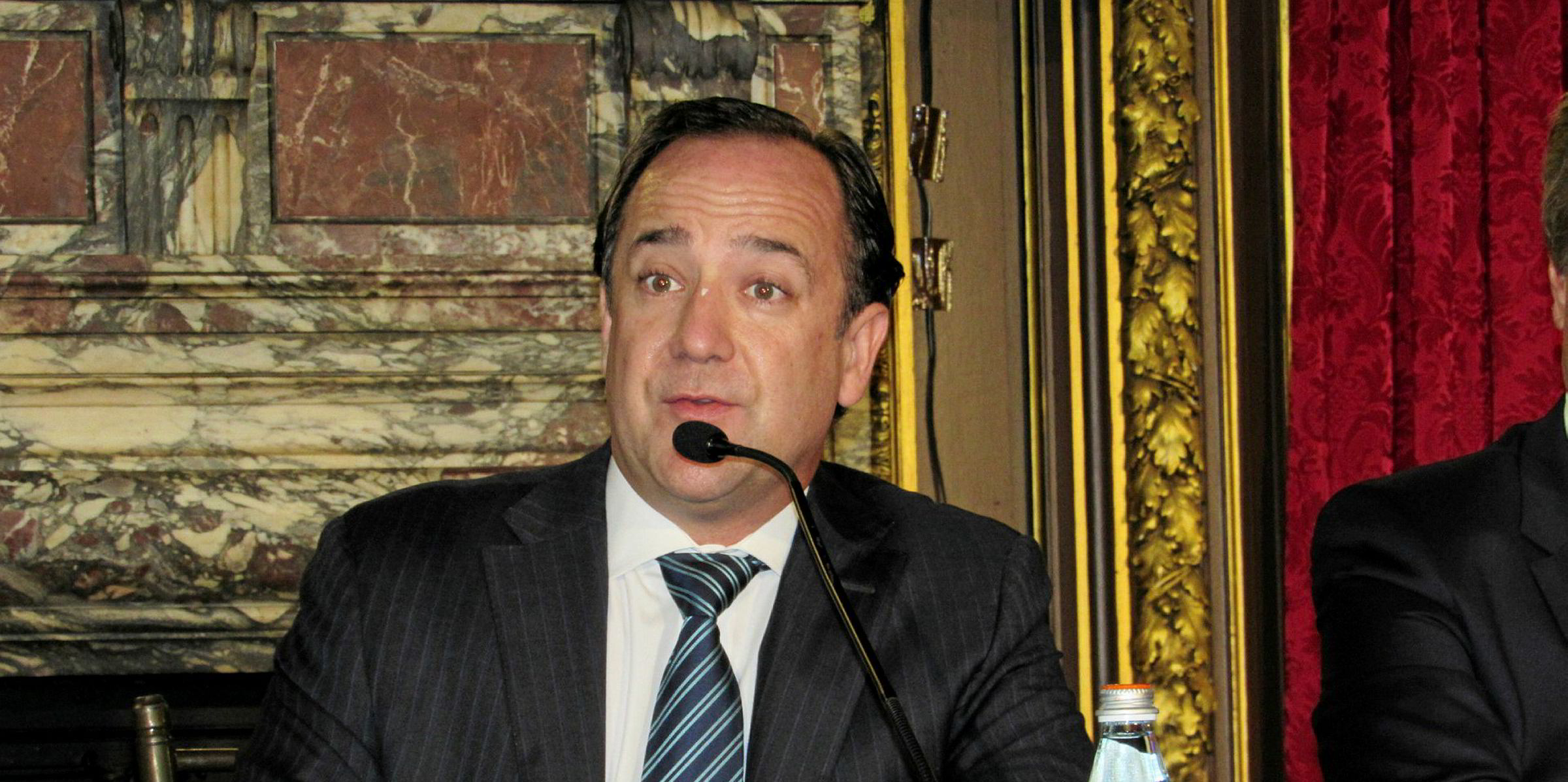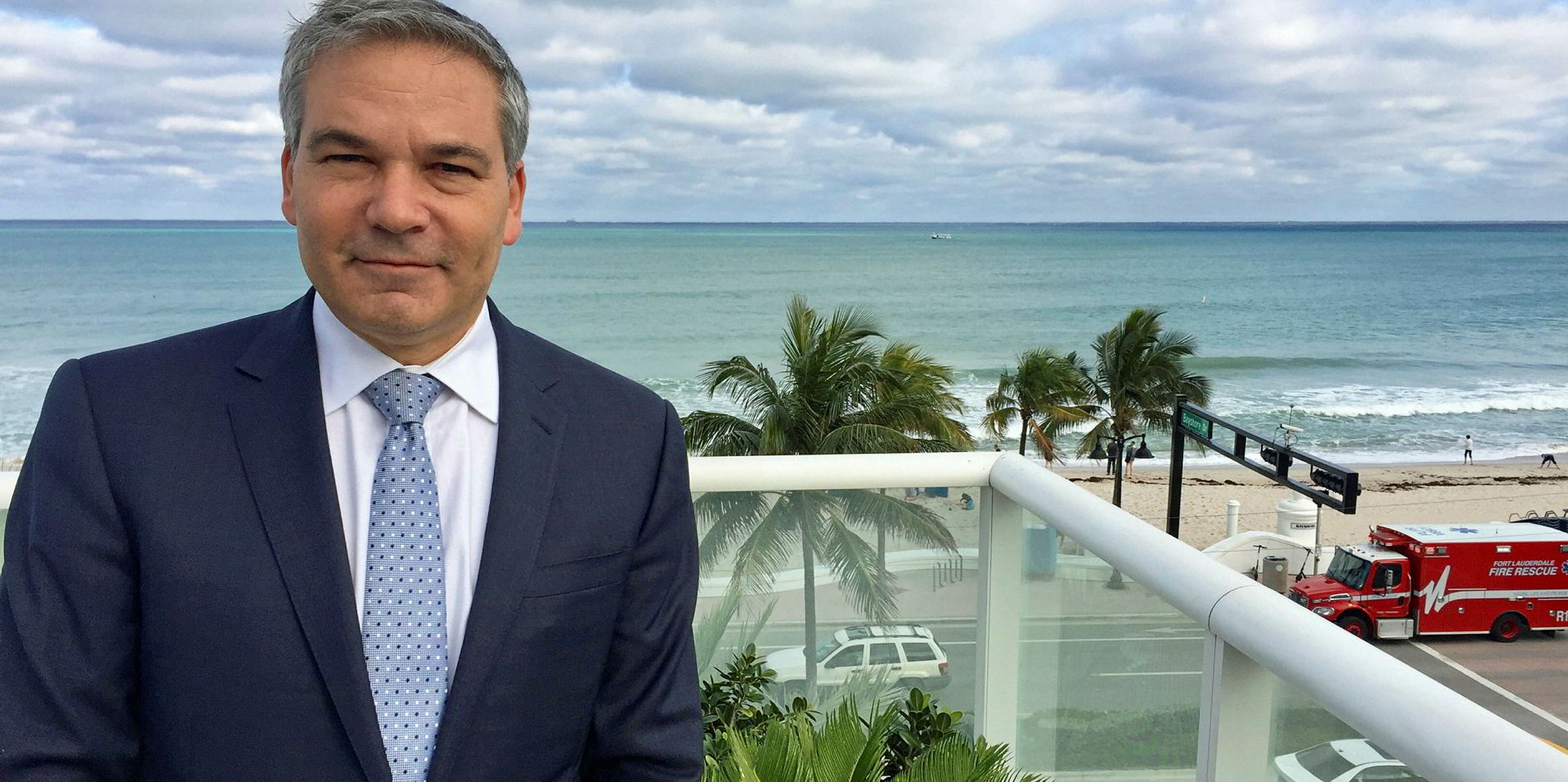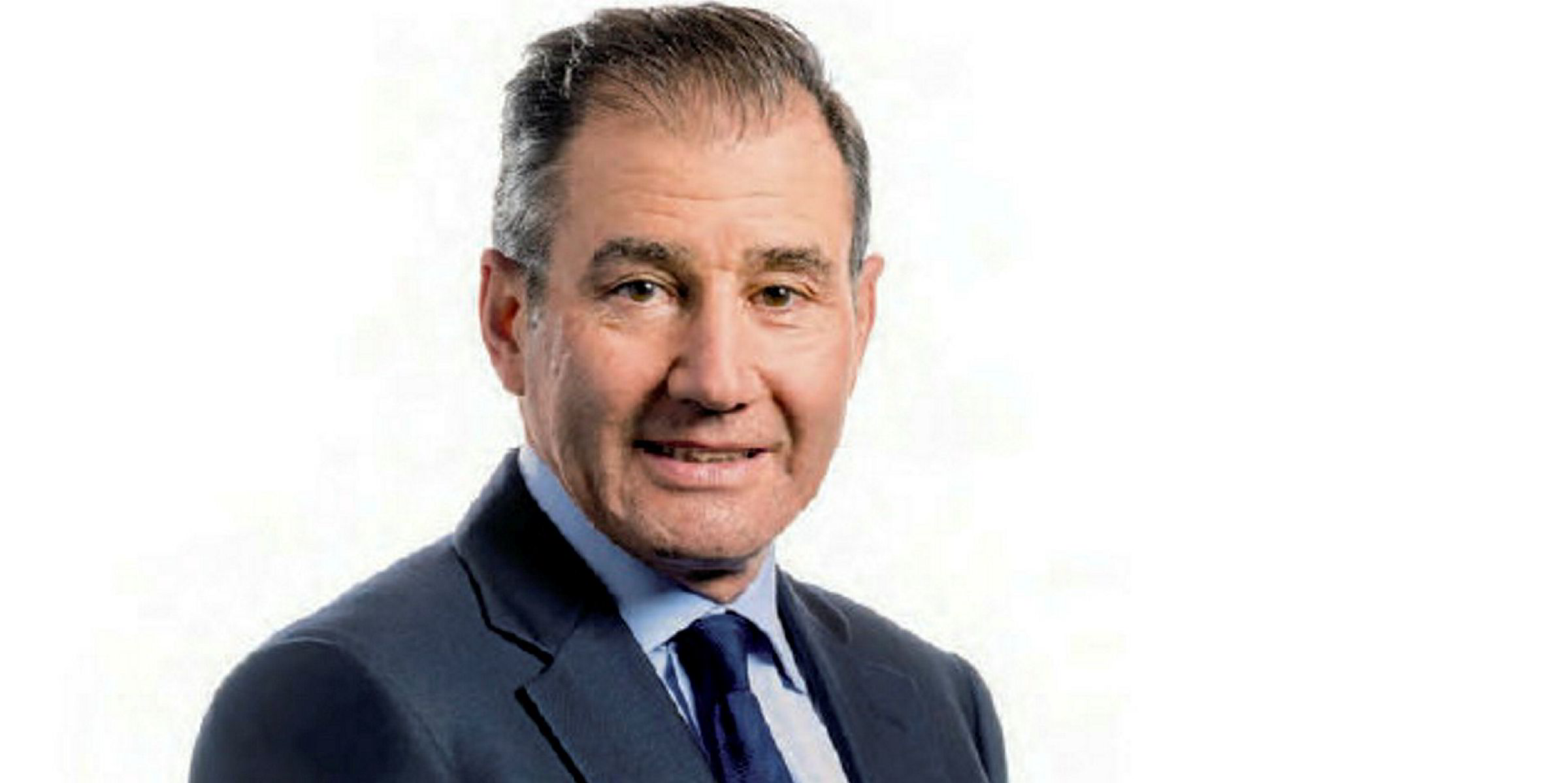ANGELIKI FRANGOU
Chief executive, Navios group
I expect the next 10 years in the dry bulk market to be as dynamic as the last. We see continued strong demand for transport as the world will require raw materials for building, powering and feeding an urbanising, industrialising and mobilising world.
For context: about half the world lives in rural areas, half the world still struggles to make ends meet, almost one billion people have no access to electricity and 800 million people are chronically hungry.
Meeting those needs will require the movement of more grains and other raw materials to make steel and machinery as vast numbers of people urbanise, get access to electricity and consume a more Western diet.
Our industry is faced with a unique challenge: meeting the market’s growing demand for transport while reducing our carbon footprint and satisfying current IMO 2030 greenhouse gas (GHG) sustainability goals.
In preparing for IMO 2020, many shipowners have opted for scrubber technology, which injects into the ocean exhaust sulphur created by internal combustion engines. Our view is that this is an analogue solution in a digital world.
We expect that new technologies, evolved from other industries, will be applied to our industry to radically reduce carbon output. For example, we can see a day where the shipping industry uses incremental technologies that have relatively short payback periods, such as battery systems that partly or fully replace auxiliaries onboard ship.
Until then, owners and charterers will work together to save time and fuel by increasing scheduling efficiency or debottlenecking maritime infrastructure so that ships burn less fuel.
The benefit is that the incentives are already there: any reduction in time or fuel saves money, improves profitability and reduces GHG; any day saved in a voyage will also result in improved profitability and reduce GHG.
With a combination of both operational and short payback investments, there is a very high probability that shipping can meet the upcoming 2030 GHG limits with existing technologies.
The risk to shipowners is that as new technologies are evolving, technology obsolescence can threaten, so buying and selling vessels may entail new risk.
However, there will be opportunities to make money on asset plays as well as operating ships, which are Navios’ strong suits.
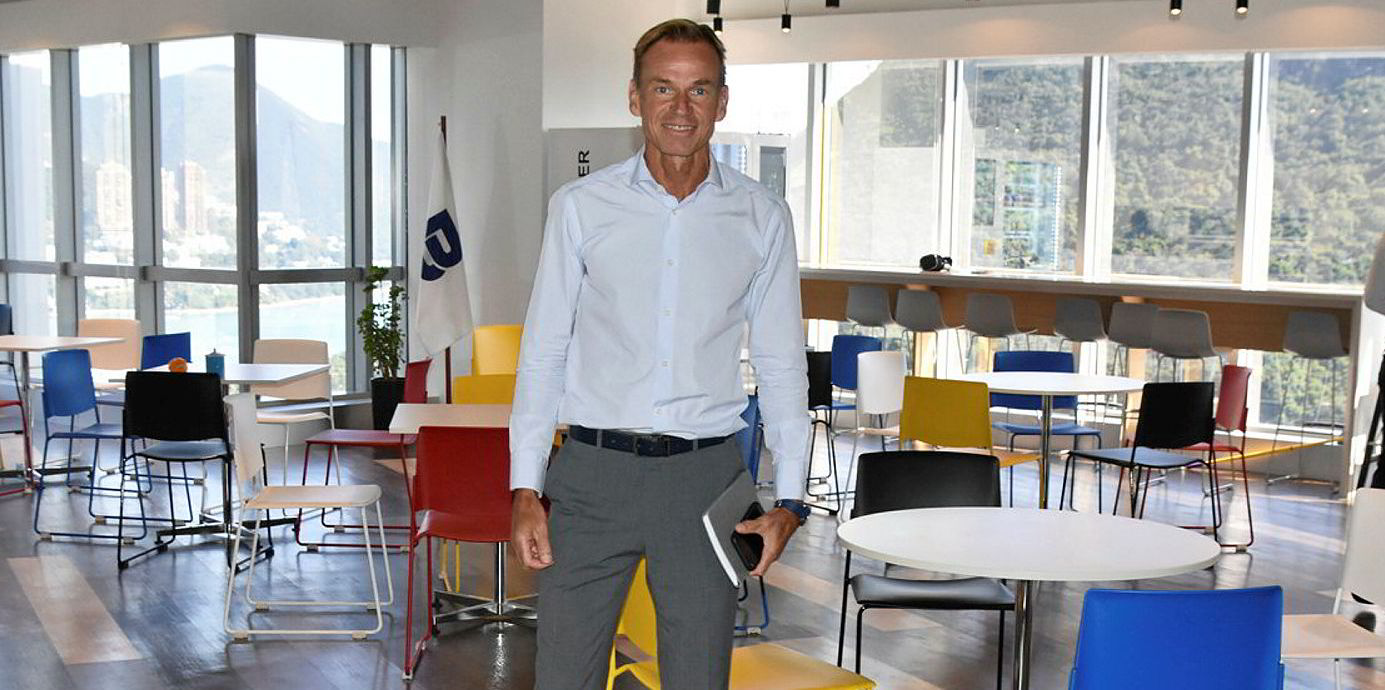
MATS BERGLUND
Chief executive, Pacific Basin Shipping
The fundamentals look favourable for our ship types as we enter the 2020s. Net fleet growth in our handysize and supramax segments has been steadily reducing since 2015, which means we can do well in spite of somewhat slower demand and world economic growth.
Minor bulk demand is resilient and expected to continue to grow at 3% to 4% per year, while the combined handysize and supramax fleet is expected to grow around 2% net in 2020 and potentially less in the following years.
Additionally, the new and higher price of low-sulphur fuel oil required from January 2020 will incentivise owners to steam slower, which is positive for the supply/demand balance.
Hence, we remain cautiously optimistic about the minor bulk market, although there remain uncertainties about the US-China trade war, slower global economic growth and the negative influence of the larger orderbook in the capesize and panamax sectors.
Our industry’s ambitious CO2 reduction strategy and the drive to decarbonise will probably be the challenge of the decade, or century. Pacific Basin is among the most emissions-efficient companies in our segment because 90% of all our vessel days are fully laden and because of our many fuel-optimisation initiatives.
We support the development of new low-carbon and zero-carbon technologies for shipping and we see momentum building in this area, although it will take some time — maybe five to 10 years — before we see commercially viable solutions for handysize and supramax ships.
In the meantime, it is not rational to place newbuilding orders for ships with traditional fuel oil engines.
Freight rates are not high enough to depreciate a new ship over 25 years, and new regulations to phase out CO2 from shipping will mean the economic lives of new ships will be cut short of the 25 to 30 years from delivery that shipowners have historically had to recoup their investments.
Secondhand acquisitions of reliable and fuel-efficient Japanese-built ships make a lot more sense since the break-even levels are substantially lower and the payback time much shorter than for newbuildings.
After many years of oversupply and unsatisfactory profitability, this sets up for an interesting period in which the supply side will shrink and freight rates will be pushed up.
Refraining from ordering “new ships with old technology” is in shipowners’ own hands to control, and we need both this discipline and higher freight rates to fund truly new ships with lower carbon emissions.
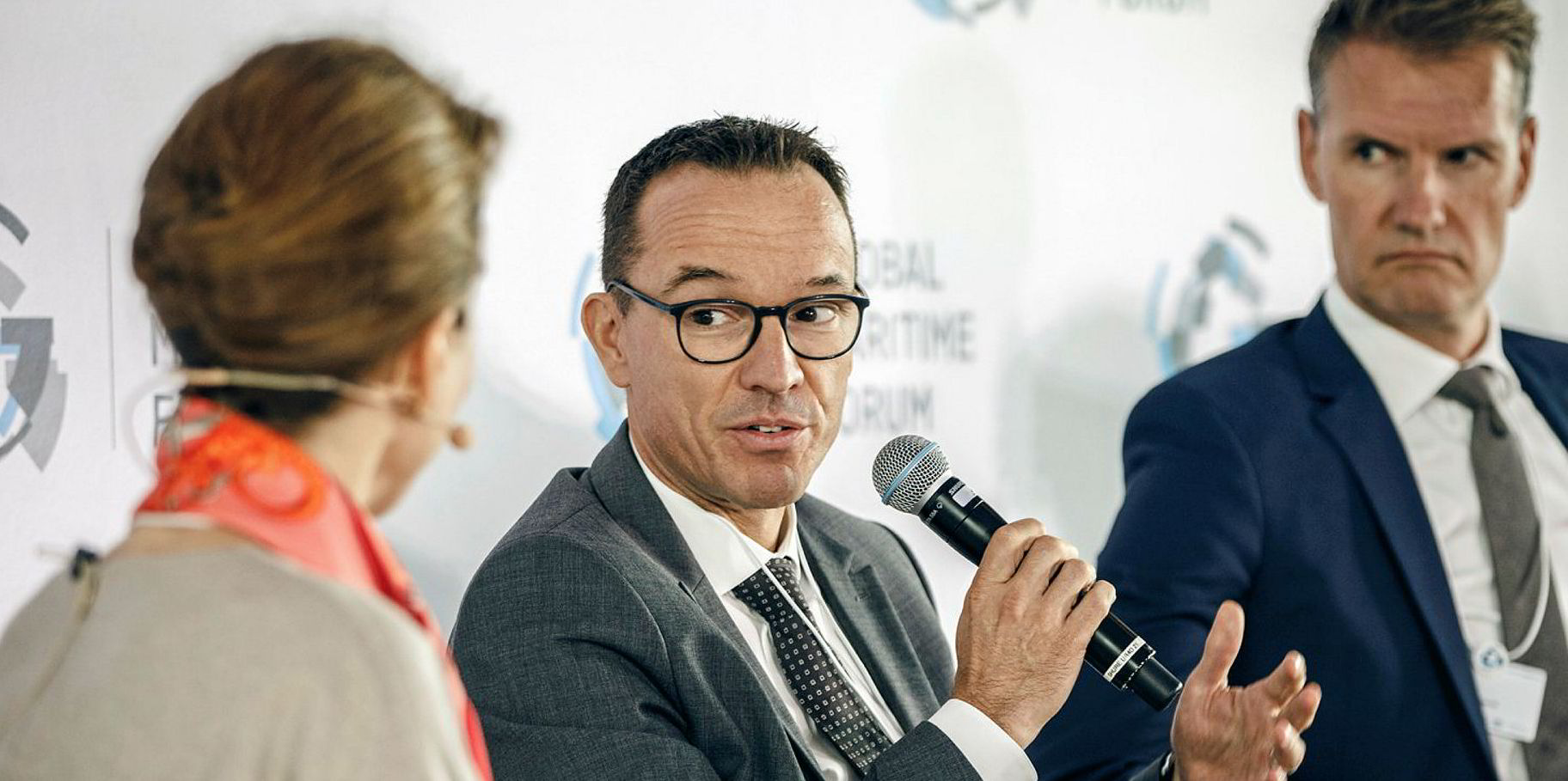
JAN DIELEMAN
President, Cargill Ocean Transportation
The uncertainty around the ship and the fuel of the future — the “green question” — will slow decisions about what to build and a focus on supply will be the main market driver.
The countdown to having zero-emissions vessels on the water by 2030 will commence in meeting the IMO’s decarbonisation 2050 target. We expect there to be considerable market consolidation as leading industry players join forces to promote their sustainable solutions.
The shipping industry is behind on digitalisation. We anticipate a dramatic increase in digital progress, transforming the way our industry operates and the way in which key players interact.
There is a need for different talent. Maritime has long suffered from a male-dominated workforce cultivated from inside the industry. Times are changing, and the allure of transformational technologies to make shipping more sustainable and digital will attract a wave of fresh talent from outside the industry.
At Cargill Ocean Transportation, we will convert these challenges into profitable and sustainable opportunities.
There will be huge volatility around fuel and we will look to capture this. This aligns with our ongoing initiatives to optimise vessel performance and fuel consumption.
We will explore new technologies to further reduce emissions — partly through our collaboration with Maersk Tankers and Mitsui & Co — and we will work to make reporting on vessel emissions an industry standard.
The next 10 years will present change, challenge and chance.
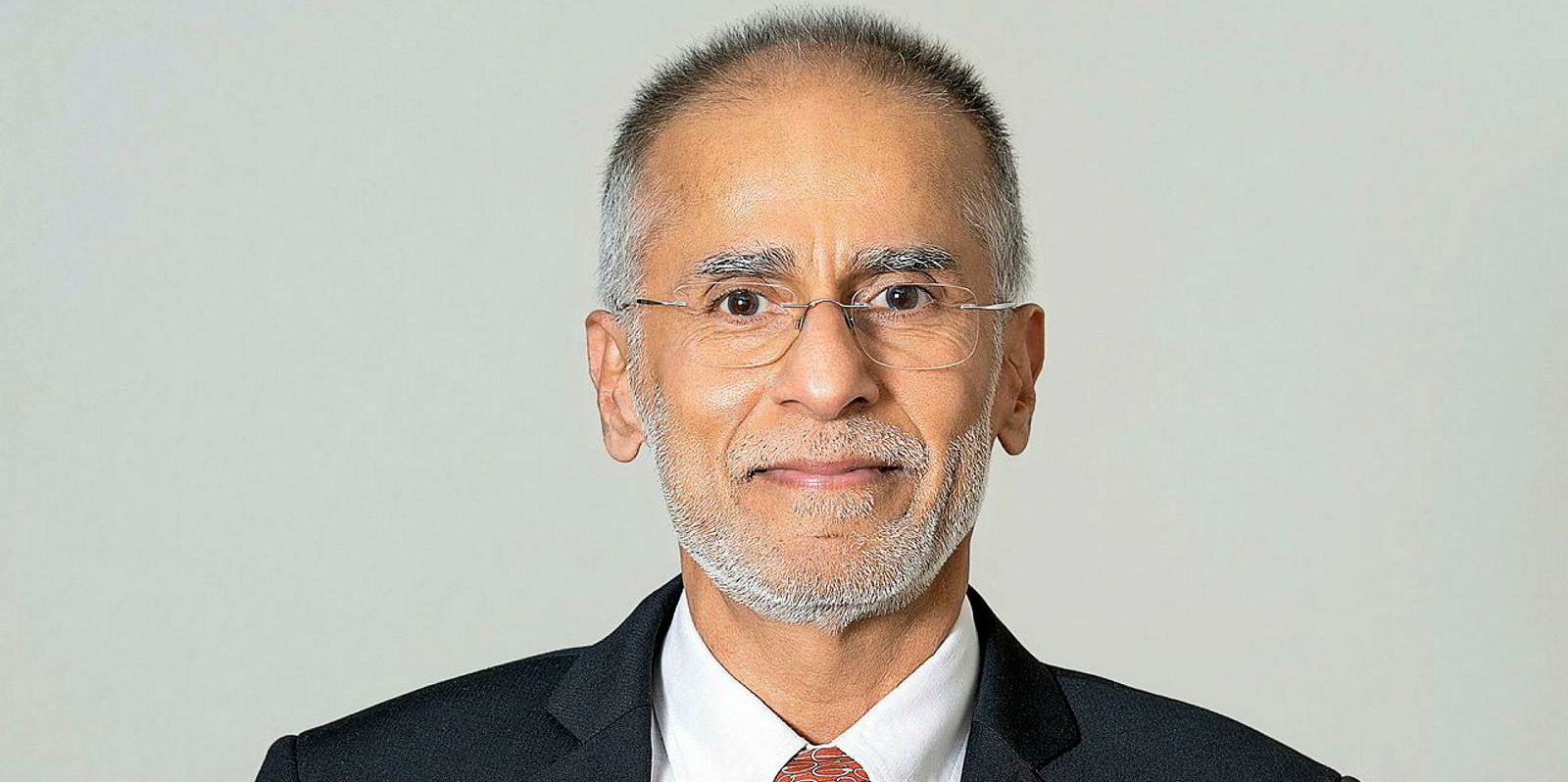
KHALID HASHIM
Managing director, Precious Shipping
My focus will be on opportunities as they are but challenges in disguise. As we at Precious Shipping see it, there are four main challenges that are present, and will continue for the next decade.
Decarbonisation is where maximum work needs to be done, including identifying the right fuels, followed by shipyards building compliant vessels that would be commercially viable for such fuels.
This will assist in reaching the greenhouse gas targets set by the IMO. Precious has joined the “Getting to Zero Coalition” alliance and will be taking part in different work streams over the next few years to come up with a zero-emissions vessel.
Digitalisation needs to be collaborative. None of us can do it on our own, as it is just too expensive. All of us have data but it must be pooled to have the desired impact and in a standardised format.
Safety will continue to be a priority. Precious has had a full-scale simulator at our office for more than 15 years staffed with eight engineers/captains to train our sailing staff in all aspects of safety.
Human capital in the form of younger talent at sea as well as at the office must be at the forefront of our collective efforts.
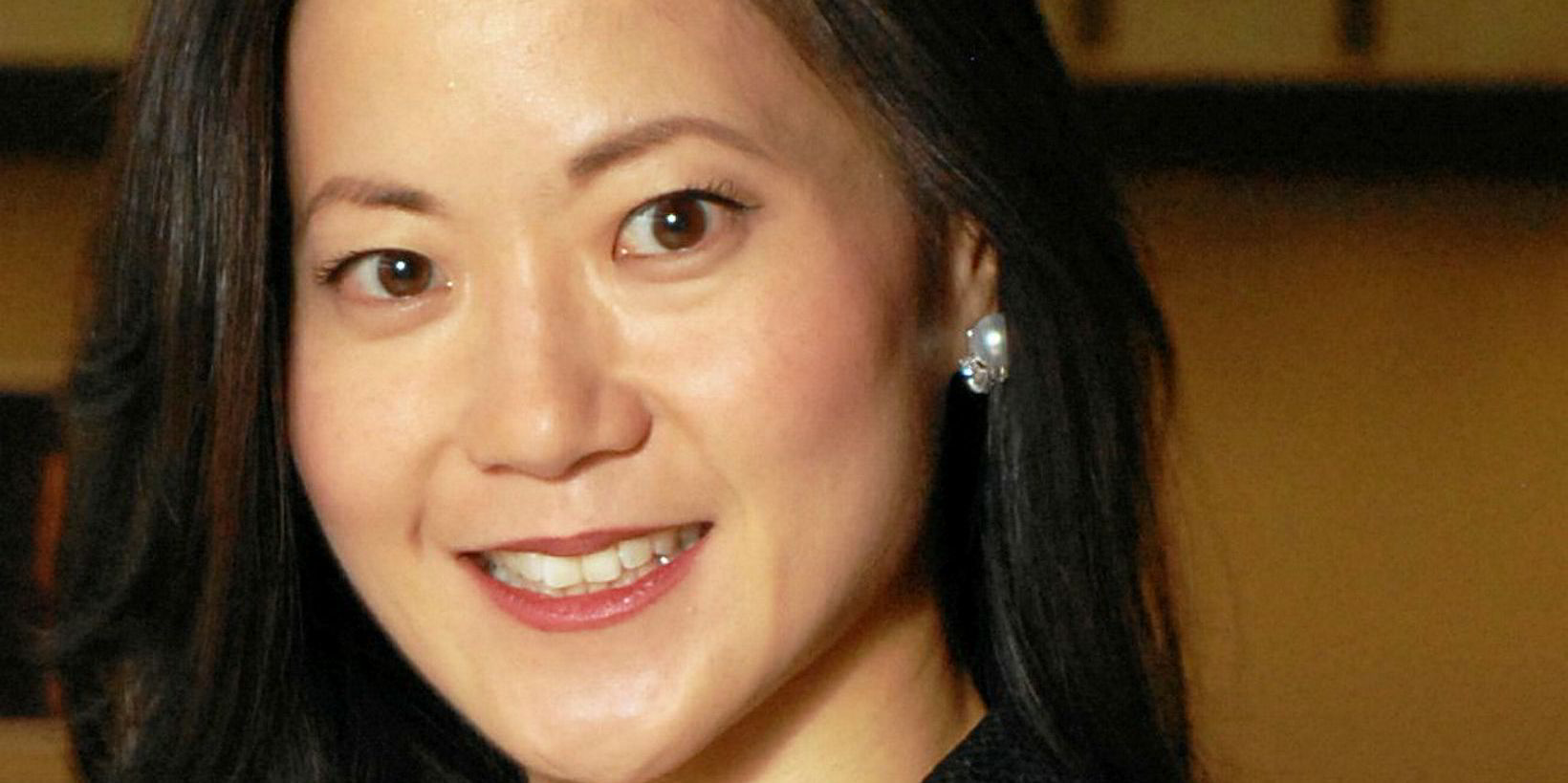
ANGELA CHAO
Chief executive, Foremost Group
As we look towards the 2020s and beyond, it is clear that protecting our marine environment, and our environment at large, will continue to be a top priority.
With an increasingly global economy, and ever more ships travelling our oceans, we must all work together to ensure cargoes reach their destinations efficiently, responsibly and safely as we feed and build the world.
At Foremost Group, managing a fleet of eco-friendly ships has been a central part of our commitment to excellence for decades. It has also been a key differentiator and competitive advantage for Foremost and, paired with our focus on superior performance, has earned the company a strong reputation both from our charterers and across the dry bulk industry.
We look forward to continuing to work with our charterers and industry partners to continue to be responsible stewards of the environment and a leader in operational excellence in everything we do to contribute to make a better tomorrow.
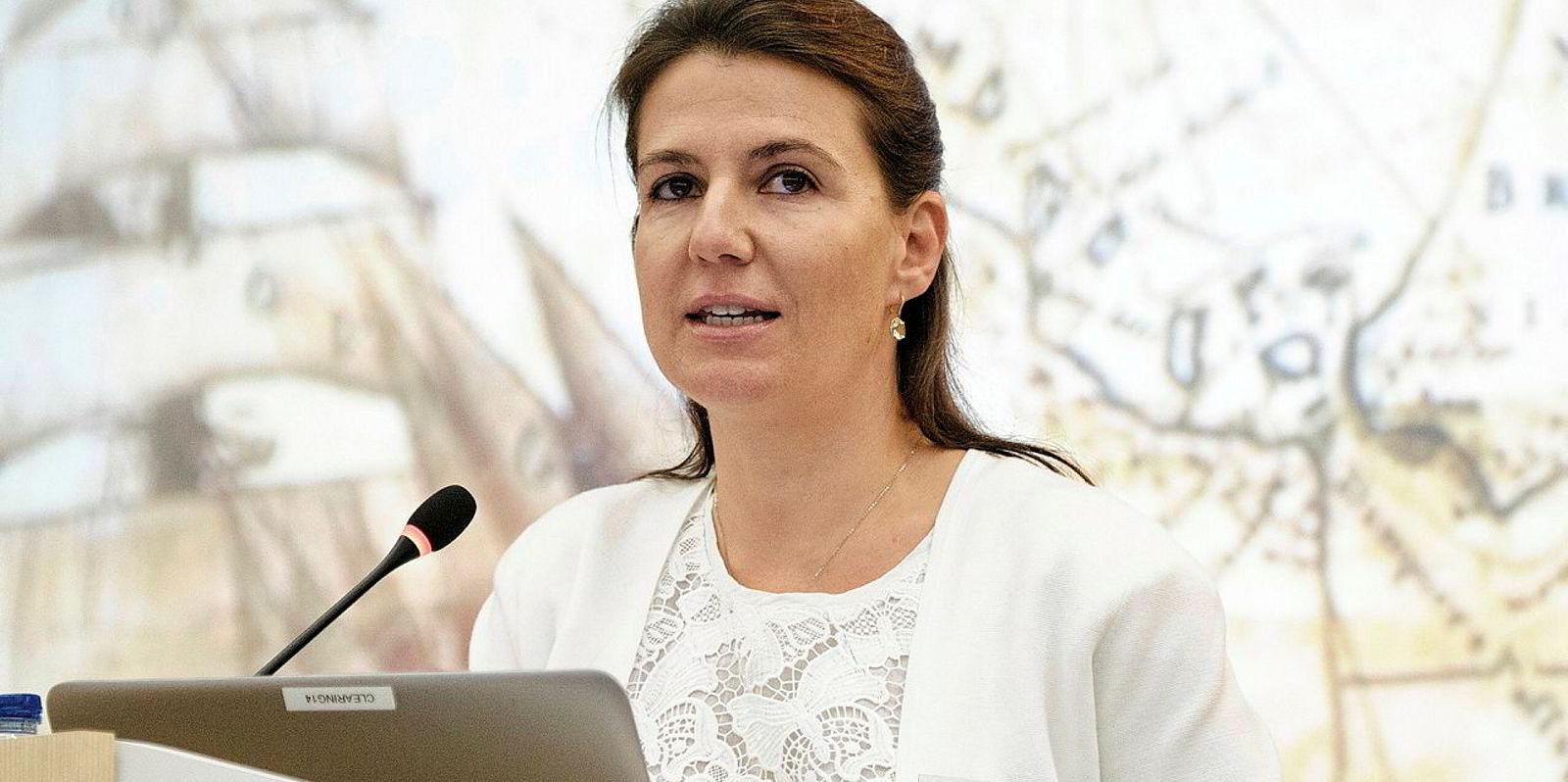
IOANNA PROCOPIOU
Chief executive, Sea Traders
The regulatory framework and the climate crisis will be at the forefront of our lives in the next decade.
Climate change mitigation measures have captured [the] industry’s interest, and several technical or operational alternatives [for example, LNG, hydrogen, ammonia, speed limits and engine power reductions] are under discussion. It is crucial to select and incorporate these solutions in a way that is feasible, practical and sustainable and that will yield clear environmental benefits.
There will be a number of interests outside the IMO expressing opinions on how to regulate the maritime sector in order to improve its environmental impact. There will be pressure to comply with an ever-mounting amount of local regulations. This will create an unnecessary burden and lead to high investments in order to comply with a range of rules and regulations.
Our company is well prepared in the face of this new landscape as we monitor closely the regulatory developments by actively participating in technical committees and other bodies of the industry.
In addition, we aim to select qualified personnel both ashore and onboard, who, with the proper training, will be able to form high-skilled teams capable of facing the challenging decade ahead.
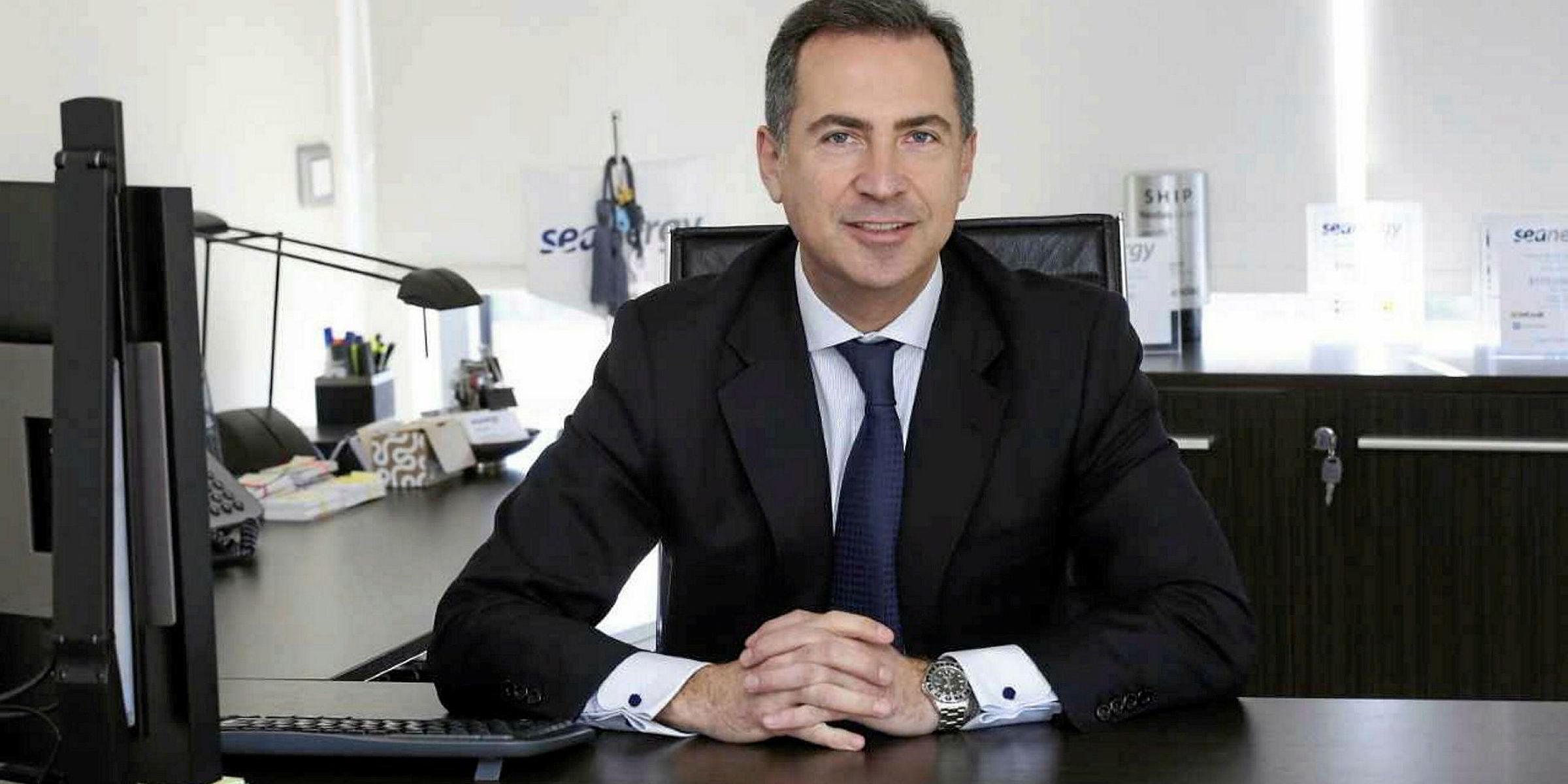
STAMATIS TSANTANIS
Chief executive, Seanergy Maritime
Complying with the environmental rules and policies in the next decade is a tough objective for all the shipping industry.
What makes this an even bigger challenge is the uncertainty surrounding the new marine fuels and the prevailing vessel technology in order to meet these targets.
A new ship ordered today may be technologically obsolete by its delivery in 2021-22.
While we seek the answers for carbon-free transportation of goods and people, the global population will need to be fed, infrastructures will need to be built and the earth will need to continue moving.
There are immediate solutions that are beneficial for the environment, which are also favourable for the shipping industry. I will not focus on the obvious one of slow steaming as I am sure many contributors will have discussed the matter.
Fuel efficiency
I would like to focus in upgrading the existing vessels by installing energy-saving devices.
There are known solutions that can improve the fuel efficiency of each ship by 5% to 10%, which results in lower fuel consumption and thus lower carbon emissions.
We have been pioneers in this field by establishing partnerships with some of our major charterers in order to retrofit a portion of our fleet accordingly.
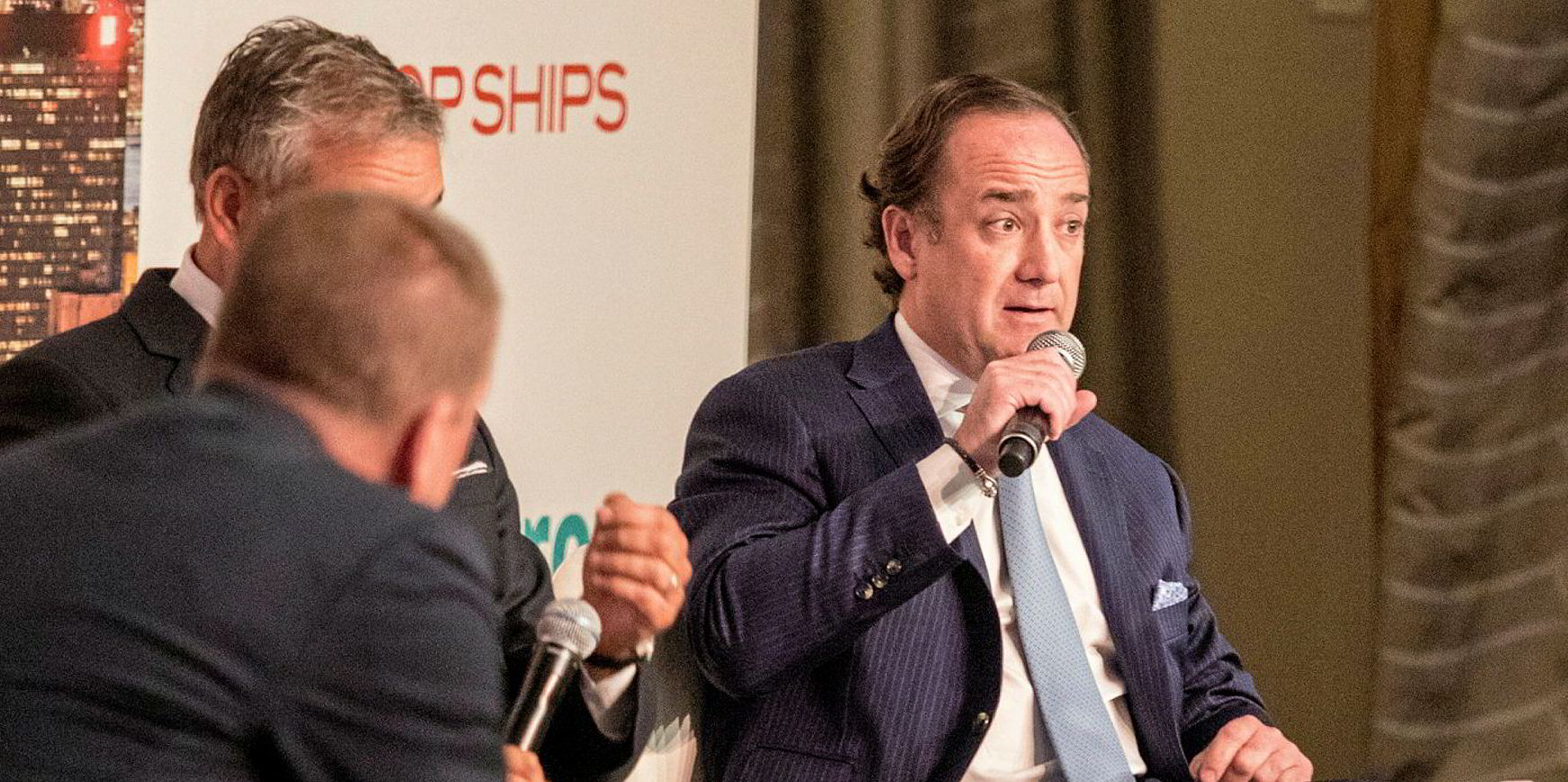
JOHN WOBENSMITH
Chief executive, Genco Shipping & Trading
As we enter the next decade, many new challenges will arise that are not only centred around our commitment to shareholders and profitability of operations but also on the overall impact these operations have on local communities and the environment.
It is important for us to be able to seamlessly integrate the concepts of earnings, cash flows and profitability with social and environmental responsibility to continue our advancement as an industry.
We are at a unique point in time, not only in the current market cycle, but also in the history of the space to leverage technological advancement with decades of invaluable knowledge and experience.
For Genco specifically, this will require the continued diligent efforts from our most important resource, the people both onshore and onboard our vessels.
Intense focus
Key elements that will not change are our steadfast commitment to our people and our intense focus on operating our ships to the highest safety standards.
For dry bulk shipping, I view consolidation as an important step in making this sector more attractive to investors.
A more stringent regulatory framework could create higher barriers to entry and drive increased mergers and acquisitions activity, a backdrop in which well-capitalised companies like Genco will thrive while others may have more difficulty competing.
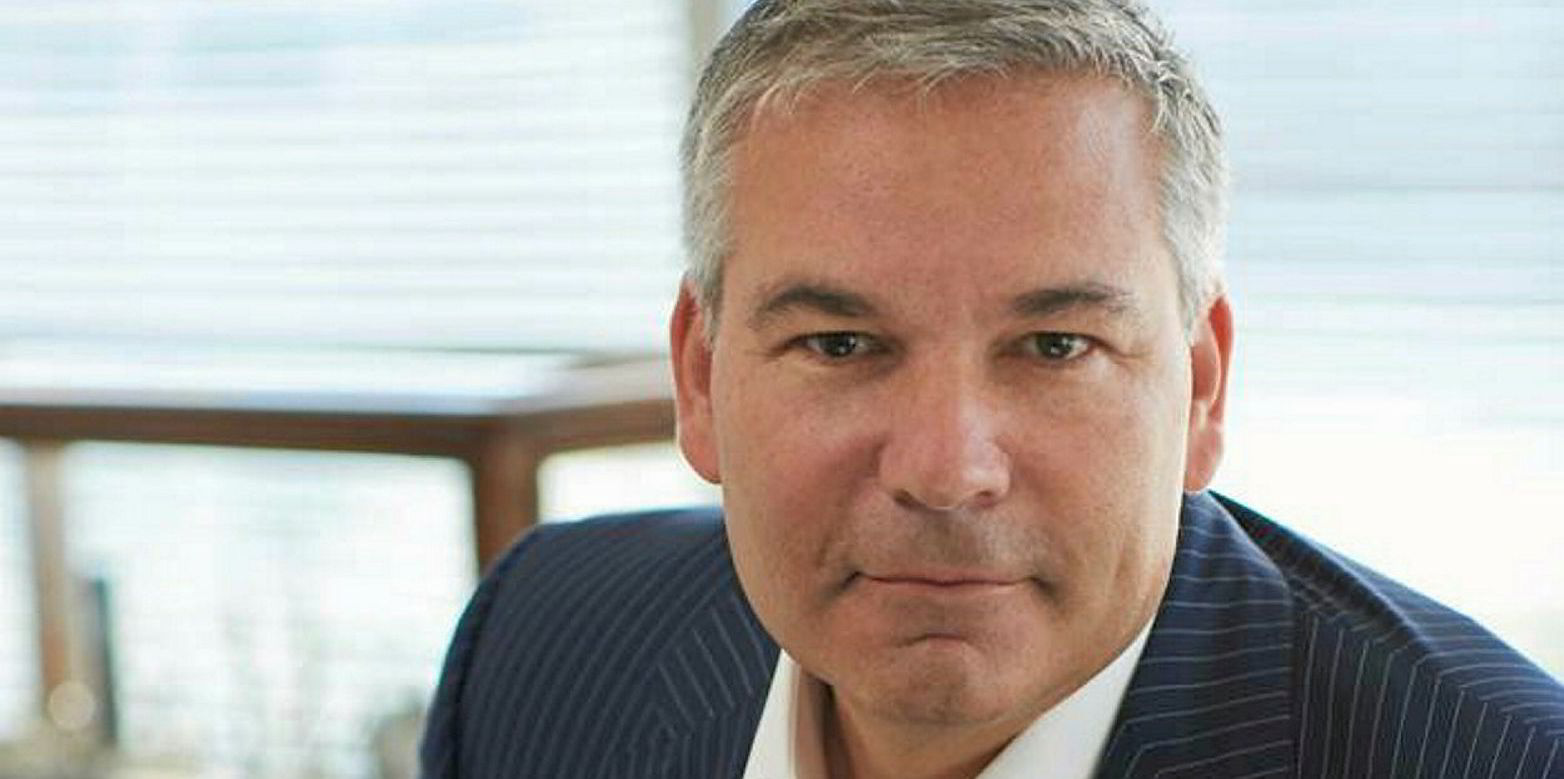
GARY VOGEL
Chief executive, Eagle Bulk Shipping
With the IMO 2020 regulation about to start, Eagle is well-prepared to both comply and benefit from the new low-sulphur emissions environment. At the same time, we are also starting to shift focus towards IMO 2030 and what comes next.
The momentum towards a lower carbon future driven by regulatory, industrial, and end-user demand is undeniable and should have a profound effect on our industry over the next decade and beyond.
While it is too soon to know what the prevailing next-generation fuel solutions will be, we think the lack of certainty will act as an inhibitor for newbuilding ordering.
This will be a welcome side effect and an important contributor to restoring and maintaining a healthy long-term supply/demand balance.
In the interim period, we believe that optimising vessels through equipment retrofits and the use of more advanced coatings has been and will continue to be beneficial for Eagle.
Also, focusing on the optimisation by utilising data and AI, as well as a continued proactive focus on efficiencies, will help to both reduce our environmental footprint and be a competitive advantage.
While change is a constant, the pace of advances — both organic and regulatory-driven — is accelerating, and we believe companies that embrace the challenge will be rewarded.
Eagle is committed to being one of those companies, and we are excited for the opportunities that lie ahead.
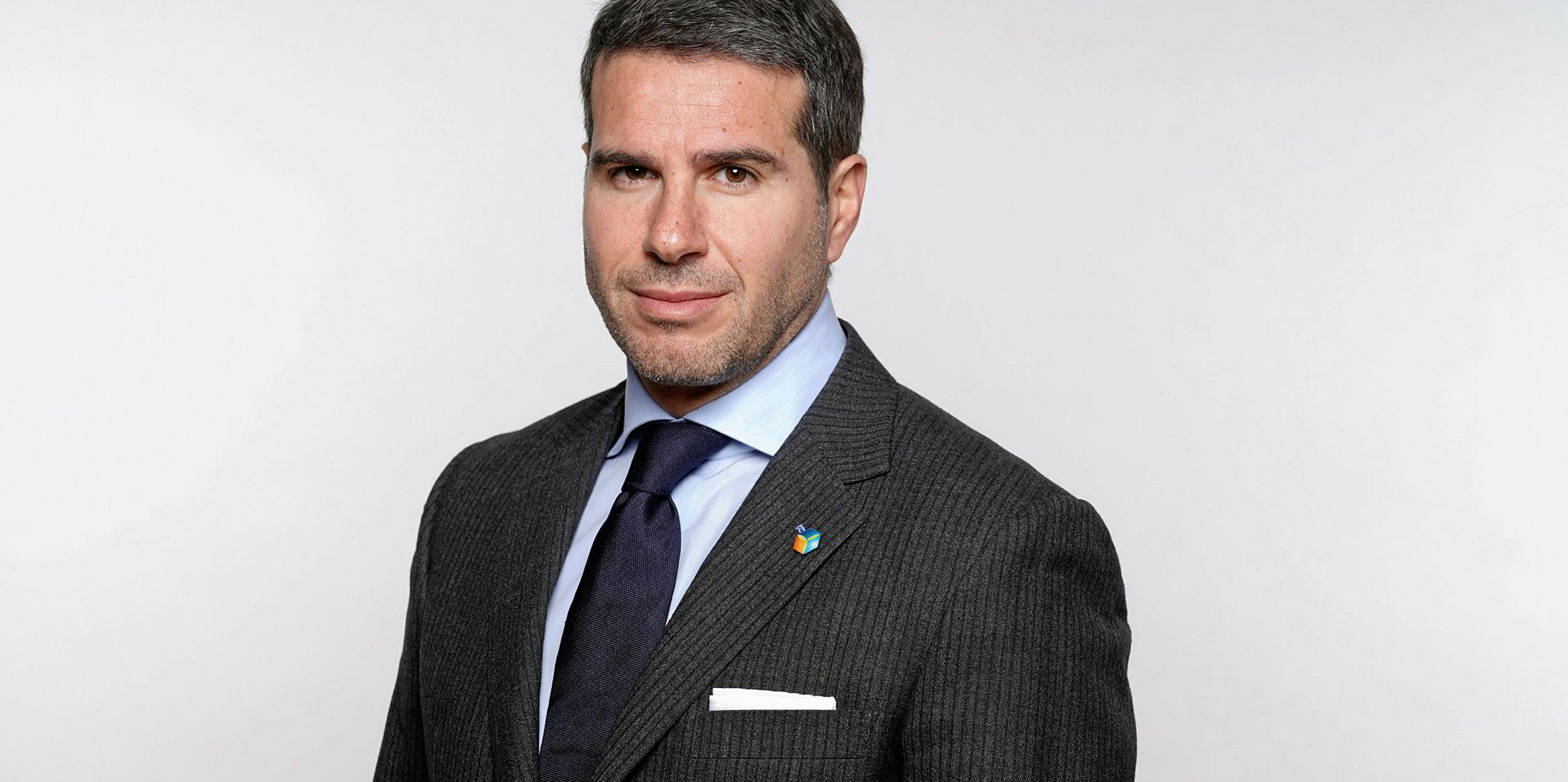
ALESSIO DE LA ROSA
Head of freight, Cofco International
At Cofco we see a significant challenge ahead for the maritime transport sector to come together and work towards the IMO’s target to reduce the total annual greenhouse gas emissions by at least 50% by 2050 compared to 2008.
Like any disruptive process, this transition will produce winners and losers. We believe that the societal and political pressures on our industry will continue to mount and that in the long-term only stakeholders who are willing to lead on innovation and implementation will position themselves on the forefront.
We are therefore in the process of constructing a newbuilding long-term period fleet of eco-only ultramaxes and kamsarmaxes whilst having close interactions with shipbuilders who are set to deliver the first LNG-fuelled dry cargo vessels. In September we joined the Getting to Zero Coalition alongside a range of industry-leading peers, in order to support and share best practices to develop commercially viable, zero-emission vessels operating along deepsea trade routes by 2030.
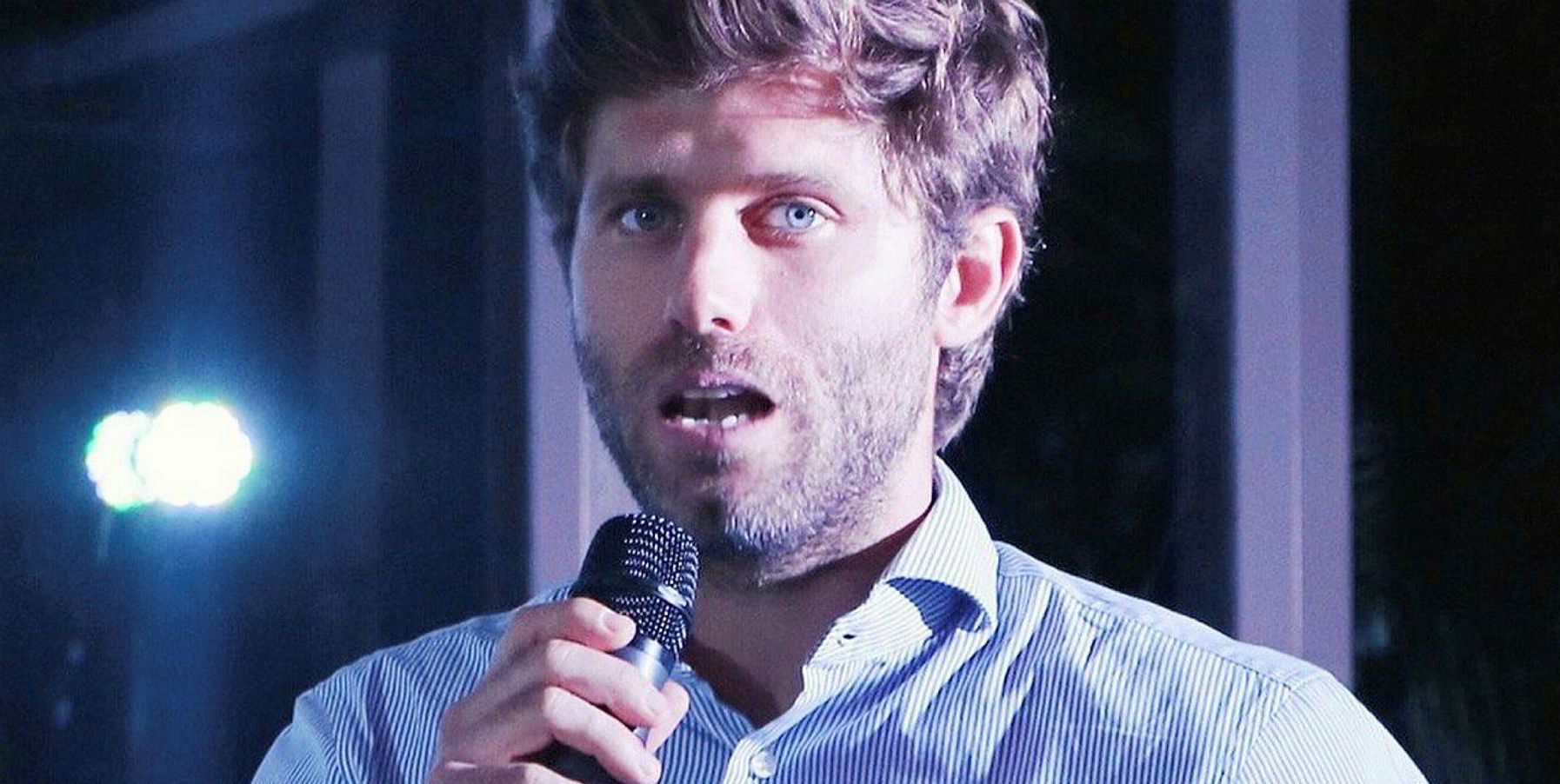
ARIS KOROPOULIS
Managing director, Astra Shipmanagement
In my humble opinion we will witness vast changes in the dry sector over the next decade. Shipping has relied on the perpetual growth of world trade, which in turn has relied on the everlasting growth of consumerism.
I believe that we are reaching a plateau on how much industrial development our planet can afford. I trust that we will see fundamental societal changes in the next few years that will help stop climate change.
Societal change
Such could be the switch of human diet from meats to plants in both developed and developing world, the switch of energy production from coal to renewables and the switch of packaging from more to less.
All of the above will have a great impact on the amounts of grains, coal and other dry commodities carried in the years to come.
We must all therefore brace ourselves for difficult times ahead in regards to earnings. The only solution would be to restrain ourselves from overbuilding in order to keep the demand-supply balance healthy.
A lot of investment must be done in order to run our ships efficiently and in a sustainable manner. As trade evolves, new opportunities will arise in more niche markets and we must therefore keep our eyes open for opportunities in less conventional markets.
This is part of a multi-sector series on shipping industry outlook for the decade ahead. Read the full report in this week's print edition.
